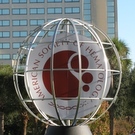Articles tagged with: Meeting Update
NewsFlash »
Myeloma Expert Dr. Philip McCarthy To Field Questions At The Beacon Forums Next Week – During the week of December 13 through 17, multiple myeloma patients will have the opportunity to get expert answers to their myeloma-related questions: Myeloma expert Dr. Philip McCarthy from the Roswell Park Cancer Institute in Buffalo, NY, will answer medical questions posted to the Beacon’s multiple myeloma forums throughout the week. Readers are encouraged to start posting their questions in the forums.
BT-062 Is Safe In Relapsed/Refractory Multiple Myeloma (ASH 2010) – The investigational drug BT-062, which is being developed by the German company Biotest AG, is safe in relapsed/refractory multiple myeloma patients, according to the Phase 1 trial results presented at the 2010 Meeting of the American Society of Hematology (ASH). Researchers tested seven different dose levels (10 mg/m² to 200 mg/m²). Researchers observed severe skin- and mucous membrane-related side effects at the highest dose level. They therefore determined the maximum tolerated dose to be 160 mg/m². A sufficient amount of anti-myeloma activity was observed for this drug to continue to Phase 1/2 testing, which puts more emphasis on the efficacy of the drug. For more information, please see abstract 3060 on the ASH annual meeting website.
ARRY-520 Shows Single-Agent Activity in Relapsed/Refractory Myeloma (ASH 2010) – Phase 1 clinical trial results presented at ASH earlier this week showed that the experimental drug ARRY-520 (filanesib) from Array BioPharma has anti-myeloma effects as a single agent. Four of 30 relapsed/refractory myeloma patients enrolled in the study responded to treatment. ARRY-520 was administered intravenously at different doses (1 mg/m2 to 2.25 mg/m2) on days 1 and 2 of a 14-day cycle with or without growth factors. The maximum tolerated dose was 1.25 mg/m2 ARRY-520, but the dose could be increased with the addition of growth factors. The most commonly reported side effect was low white blood cell counts. Inflammation of the digestive tract mucus membrane was observed at higher dose levels. The maximum tolerated dose in combination with growth factors, which is still being investigated, will be used in the Phase 2 trials that Array BioPharma plans to initiate soon. For more information, please see abstract 1959 on the ASH meeting website and the Array BioPharma press release.
Panobinostat Combination Shows Potential For Relapsed/Refractory Multiple Myeloma (ASH 2010) – According to Phase 1 trial results presented at ASH, the oral experimental cancer drug panobinostat (Farydak, LBH589) from Novartis showed promising results in combination with melphalan (Alkeran), prednisone, and thalidomide (Thalomid). Of the 24 relapsed/refractory myeloma patients enrolled in the study, 50 percent responded to the treatment, with 17 percent achieving a very good partial response. However, the initial dose of 15 mg of panobinostat was associated with severe side effects (low white blood cell counts in 69 percent of patients and low platelet counts in 46 percent). Therefore, researchers decided to lower the dose to 10 mg. The rate of low platelet counts decreased, but the rate of low white blood cell counts remained high. The researchers concluded that different dosing schedules need to be investigated to further decrease the rate of blood-related side effects. For more information, please see abstract 3019 on the ASH meeting website.
News»

Three studies presented at the American Society of Hematology (ASH) Annual Meeting and Exposition in Orlando support the use of Revlimid as maintenance therapy for multiple myeloma patients.
In two studies, Revlimid (lenalidomide) maintenance increased time to disease progression among multiple myeloma patients after stem cell transplantation.
A third study showed the same benefit for older newly diagnosed multiple myeloma patients who are not candidates for stem cell transplantation.
Side effects were minor across all three studies. However, the researchers did observe the occurrence of secondary cancers in a small …
News»

Tuesday was the last day of the American Society of Hematology annual meeting in Orlando. The myeloma portion of the conference concluded with one session of talks in the morning about treatments under development.
The first talk was given by Dr. David Siegel of Hackensack University Medical Center in New Jersey. Dr. Siegel presented results from a study of single-agent carfilzomib in myeloma patients who had relapsed multiple times and did not respond to their last treatment (abstract).
Among the 257 evaluable participants, 24 percent achieved at least a partial …
News»

This Monday was the third full day of the American Society of Hematology 2010 annual meeting, and it was packed with multiple myeloma-related presentations. The Beacon published an update earlier today covering presentations made Monday morning. This article covers material from Monday afternoon and evening.
The first presentation of the afternoon was by Dr. Ruben Niesvizky of the Weill Cornell Medical College in New York. He reported on the results of a Phase 3 trial using Velcade (bortezomib)-based initial treatment (induction) regimens combined with weekly Velcade maintenance therapy (abstract).
Patients in this trial were newly …
News»

According to the results of a large Phase 3 clinical trial, Zometa increases overall and progression-free survival rates among multiple myeloma patients compared to Bonefos and is more effective in preventing bone loss and fractures. Additonally, the trial found that inclusion of thalidomide as part of an induction regimen further improved responses.
Dr. Gareth Morgan of the Royal Marsden Hospital in London presented the results, recently published in The Lancet (abstract), at the American Society of Hematology (ASH) annual meeting in Orlando today.
“I think it is incredibly compelling that the …
News»

Monday was the third full day of “ASH 2010,” this year’s annual meeting of the American Society of Hematology. This day was the busiest of the entire meeting in terms of multiple myeloma-related material. Presentations summarizing the latest myeloma research stretched from 7 a.m. until 8 p.m.
The morning presentations from Monday will be covered in this update, and presentations from the afternoon and evening will be covered in another update later today.
The day featured a large number of presentations and posters about Velcade (bortezomib), examining its use in …
News»

Pomalidomide has demonstrated efficacy in heavily pre-treated multiple myeloma patients who have been treated with – or are even refractory to – Revlimid and Velcade.
Three studies of the use of pomalidomide (Pomalyst) in relapsed and refractory multiple myeloma patients were presented yesterday at the American Society of Hematology annual meeting in Orlando.
Pomalidomide, which is being developed by the pharmaceutical company Celgene, is an immunomodulatory agent that induces the immune system to destroy myeloma cells. It belongs to the same class of drugs as Revlimid (lenalidomide) and thalidomide (Thalomid). …
